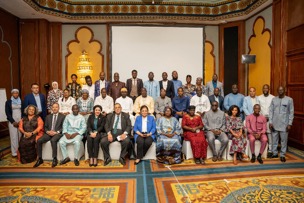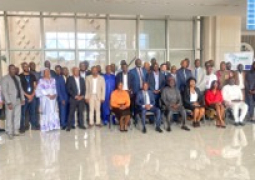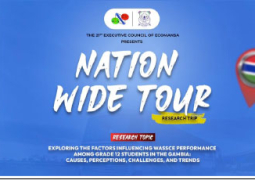
The visit aimed at learning about various perspectives of FGM, Egypt’s FGM journey and lessons learnt, FGM and Islam and other key topics, as part of the consultations of the Committee in relation to the Women’s (Amendment) Bill 2024, which seeks to lift the ban on FGM. The visit was supported by the World Bank, the UNFPA-UNICEF Joint Programme on FGM, the CSO Coalition on FGM and Safe Hands for Girls.
Prior to the tour, the National Assembly had first conducted consultations in The Gambia by hearing and receiving position papers from civil society, community organisations, the Supreme Islamic Council, gynecologists and other relevant stakeholders, to seek their perspectives on FGM and guide their committee report which shall be presented in the plenary.
While in the north African nation, the Gambian delegation reached at the Al-Azhar University and discussed with doctors and experts on the matter.
In her remarks during the tour, Ms. Jaha Dukureh, founder of Safe Hands for Girls, said Egypt had earlier medicalised FGM to give the chance to those that were interested in doing it to have it done but through the use of standard medical procedures.
“However, upon discovering the harm this practice caused even despite the s of it, they ended up criminalising the practice. It had no medical benefits and it is against the medical principle of “do no harm. It was important for the study tour to be held in Egypt. This is one country where FGM has been medicalised and then criminalised. And because of the rhetoric of the conversation we have been having in The Gambia, it was highly important that we learn from the Egypt experience as well as how they had made progress,” she remarked.
“Secondly, Egypt is one of the famous Muslim countries that practice Islam, and have a close link with how and why FGM came into existence. The Pharoah form of FGM in fact emanated from there. Thus, The Gambia being a Muslim dominated country and with the current debate linking FGM with religion, Egypt is definitely a notable country to have the consultation," she added.
“The benchmarking on FGM is quite important and contrary to most public opinions, it is a standard parliamentary practice around the world, in order to arrive at tangible decisions to guide laws and policies. Remaining within the confinements of your country might not be sufficient to arrive at tangible decisions on an issue as sensitive and crucial as the current FGM matter,” she further said.
“Equally, benchmarking does not mean every participant should or would change their stance on a subject matter. It is basically a learning exercise and every learner is guided by their conscience on how they wish to utilise their knowledge. Key moments in this tour sparked a lot of insights into the realities of FGM and what can be learned from it to avoid causing more damage,” she also noted.
Dr. Maya Morsi, president of Egypt’s National Council explained the various approaches employed by Egypt to avert FGM at both national and grassroots level.
She said considering the enormous harm caused by FGM, it is erroneous to link it to Islam as that sends a wrong connotation about the religion.
Dr Morsi challenged the NAMs to execute their political will strongly to ensure that women and girls are protected. “Linking the medicalisation and the subsequent criminalisation of FGM in Egypt, the breaking point was when research showed that there was still harm, that despite the medicalisation, girls still died from it. She clarified that the medicalisation in itself was not a national decision but a loophole in the FGM Law they had.”
She emphasised the role of the doctors who come out to authentically narrate the consequences women battle against as a result of FGM.
The expert advised that despite the awareness creation, “if there is no law in existence to prevent people from practicing FGM, there will be no sustainable progress.”
Ms. Amira Saber El Sayed Mohamed, Member of the People’s Assembly of Egypt said NAMs cannot afford to repeal the law banning FGM.
“I do not really think that it will be anything good for the nation of Gambia to be labeled as the first ever nation to retract back on this very kind of righteous issue.”
Read Other Articles In National News



